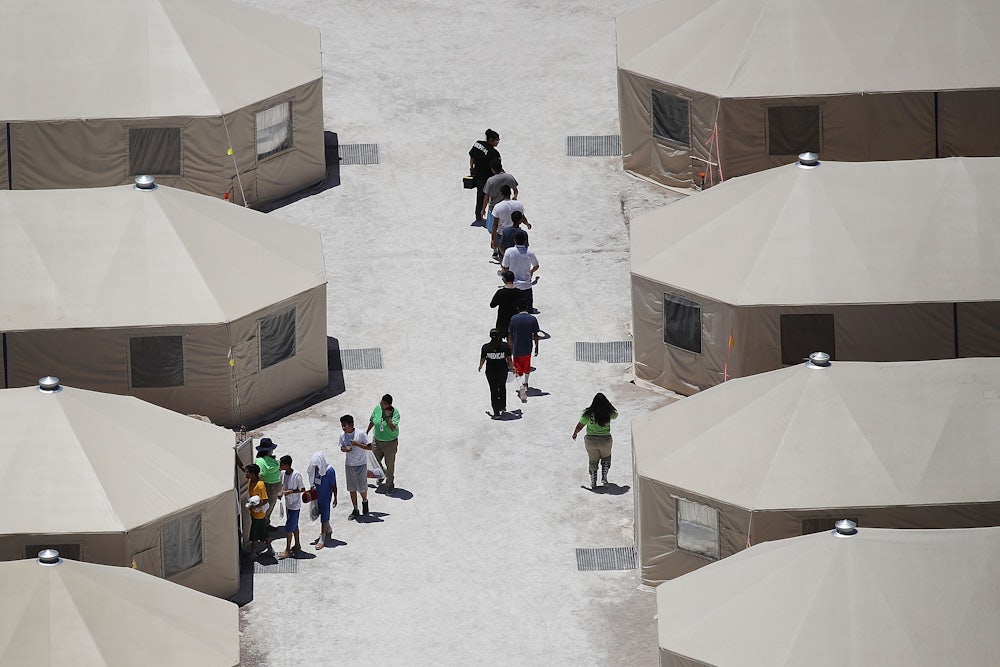The environmental non-profit Earthjustice sent an Freedom of Information Act request to the Department of Defense on Wednesday attempting to answer that question. The 12-page document asks about the Trump administration’s plans to build tent camps for migrant families and unaccompanied minors on two U.S. military bases in Texas that contain toxic sites that may threaten migrants’ health.
A planned camp at the Goodfellow Air Force Base for unaccompanied minors would be located “immediately adjacent to a closed, but uncapped landfill and directly on top of a former military firing range,” the FOIA request reads. A second camp, at Fort Bliss, would be for migrant families. Home to a former nuclear weapons bunker and weapons testing sites, the Army post is contaminated with “radioactive materials, unexploded ordnances, heavy metals, PCBs, asbestos, petroleum, pesticides, and volatile organic compounds,” the FOIA states. “These hazardous chemicals can cause cancer, neurological damage and injury to major human organs.”
Lisa Evans, the attorney who filed the FOIA, noted that many detainees are minors and women with children, who are particularly vulnerable to pollutants. “The question is, has the government done its due diligence to ensure that this particular encampments will be safe?” she said. There’s reason to worry. In June, the Pentagon scrapped plans to build a migrant camp at a military facility after it was revealed to be a toxic Superfund site. The Trump administration also suppressed a federal study that concluded contaminated groundwater near military bases was more toxic than the government realized.
Military sites are some of the most polluted places in the country. Last year, ProPublica found contaminated water and soil at approximately 400 active and closed bases. Of those, 149 were designated Superfund sites, meaning they pose a particularly dangerous risk to human health.
